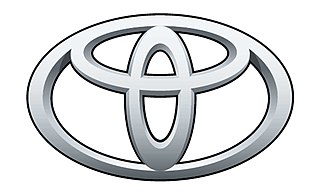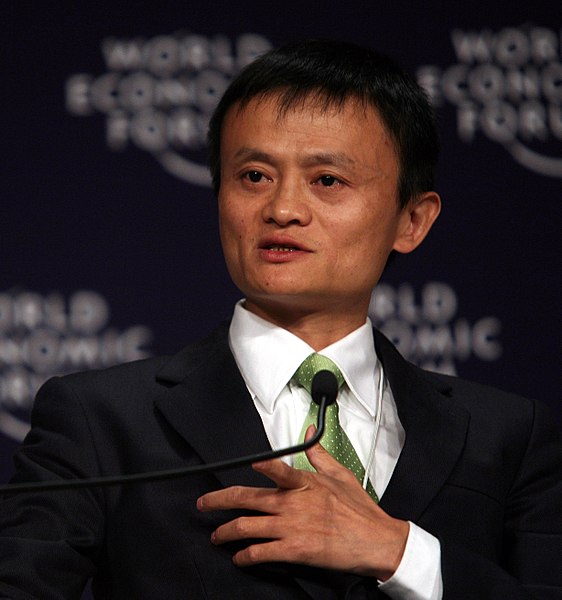Driving Success: Leadership Lessons from Toyota’s Journey

The Road to Leadership Excellence
The automotive industry, a realm where innovation and precision meet on four wheels, has produced titans that have driven society forward. Among these giants, one name has become synonymous with excellence, efficiency, and enduring success: Toyota. As we delve into the world of leadership, the stories and lessons from Toyota’s remarkable journey emerge as a reservoir of wisdom, a testament to the power of visionary leadership and continuous improvement.
In a landscape marked by rapid technological advancements, shifting consumer demands, and global competition, the story of Toyota stands as a beacon of inspiration for leaders across industries. For over eight decades, this Japanese automaker has transformed from a modest textile machinery company into an international powerhouse, reshaping not only the automotive landscape but also the very essence of leadership.
As we embark on this journey through Toyota’s rich history, we’ll traverse the roads of its humble beginnings, navigate the curves of crisis and innovation, and accelerate through the highways of ethical leadership and sustainability. We will explore how Toyota’s leadership philosophy, known as “The Toyota Way,” has become a lodestar guiding countless organizations worldwide towards operational excellence and ethical leadership.
At the heart of Toyota’s story are individuals who went beyond conventional leadership to inspire change, often in the face of adversity. Figures like Kiichiro Toyoda, Taiichi Ohno, Eiji Toyoda, and Akio Toyoda have left indelible marks on Toyota’s legacy, shaping the company’s culture and its journey toward becoming the world’s largest automaker.
But this article is more than a historical account; it’s a blueprint for leadership development. It is a guide for current and aspiring leaders who seek to lead with purpose, cultivate a culture of continuous improvement, and navigate the complex terrain of modern leadership. Whether you’re leading a small team or a multinational corporation, the principles and stories shared within these pages will resonate, offering practical insights that transcend industry boundaries.
Toyota’s journey is not merely a success story; it’s a tapestry of triumphs and tribulations, of vision and adaptation, of innovation and sustainability. It is a story of leadership that has withstood the test of time and continues to drive forward, setting the course for the future.
So, fasten your seatbelt, for we are about to embark on a transformative journey through the annals of Toyota’s leadership, where each turn of the wheel reveals a new lesson, and each mile traveled brings us closer to the destination of enduring leadership excellence. In the following sections, we will dissect the Toyota Way, explore the pivotal moments in Toyota’s history, and glean insights that will enrich your leadership journey, no matter where it takes you. Welcome to “Driving Success: Leadership Lessons from Toyota’s Journey.”
Toyota’s Historical Context
To truly understand the essence of Toyota’s leadership journey, we must first delve into its historical context, tracing the company’s roots from its humble beginnings to its emergence as a global automotive powerhouse. Toyota’s story is one of evolution and adaptation, shaped by both internal and external forces.
Founding of Toyota and its Early Years
Toyota’s origins can be traced back to the early 20th century when Sakichi Toyoda, a visionary inventor and entrepreneur, founded the Toyoda Automatic Loom Works. While initially specializing in textile machinery, Sakichi Toyoda’s inventive spirit led him to develop the world’s first automatic loom. His pioneering work in automation set the stage for the company’s future endeavors.
In 1937, the automotive division of the Toyoda Automatic Loom Works spun off to become the Toyota Motor Corporation. The transition from looms to automobiles marked a pivotal moment in Toyota’s history. The company’s founders, including Kiichiro Toyoda, Sakichi’s son, envisioned a future where automobiles would play a crucial role in shaping society.
Emergence as a Global Automotive Giant
Toyota’s journey was not without its share of challenges. World War II disrupted production, and the company faced post-war economic hardships. However, it was during these difficult times that Toyota began to lay the groundwork for what would become the Toyota Production System (TPS).
The TPS, developed by Taiichi Ohno, emphasized efficiency, waste reduction, and continuous improvement. It revolutionized manufacturing by introducing concepts like Just-in-Time (JIT) production and Kanban, which would later become synonymous with lean manufacturing practices. These principles would not only transform Toyota but also influence industries worldwide.
By the 1960s, Toyota had become a prominent player in the Japanese and international markets. The introduction of the Toyota Corolla in 1966 marked a significant milestone, as it became one of the best-selling cars globally, solidifying Toyota’s reputation for quality and reliability.
Impact of Historical Events on Toyota’s Leadership and Culture
Historical events and challenges have played a pivotal role in shaping Toyota’s leadership and organizational culture. One such event was the 1973 oil crisis, which exposed the vulnerability of traditional automotive manufacturing methods reliant on large inventories. Toyota’s ability to adapt quickly to changing market conditions through the principles of the TPS allowed it to weather the crisis more effectively than many competitors.
Another transformative period in Toyota’s history occurred during the 1980s and 1990s, as the company expanded its global footprint. Toyota’s leadership recognized the importance of localizing production and adapting to diverse markets, demonstrating a keen understanding of the need for both global standardization and local customization.
Throughout these decades, leaders like Eiji Toyoda, who served as president and later chairman, played instrumental roles in driving Toyota’s global expansion and ensuring that the company remained aligned with its core principles. Their commitment to the Toyota Way and the principles of continuous improvement helped maintain Toyota’s competitive edge.
Understanding Toyota’s historical journey provides a critical backdrop for comprehending the leadership principles that have propelled it to greatness. From a small division within a textile machinery company to a global automotive giant, Toyota’s path has been marked by innovation, resilience, and a steadfast commitment to its core values. In the following sections, we will delve deeper into the leadership philosophies and strategies that have underpinned Toyota’s remarkable evolution.
The Toyota Way: Guiding Leadership Excellence
At the heart of Toyota’s enduring success lies a philosophy that has not only transformed the company itself but has also left an indelible mark on the world of business and leadership – The Toyota Way. This section explores the core principles and philosophies that make up The Toyota Way and how they guide leadership decisions within the organization.
Explanation of the Toyota Production System (TPS)
The cornerstone of The Toyota Way is the Toyota Production System (TPS), often referred to as lean manufacturing. Developed in the post-World War II era by Taiichi Ohno, TPS is a systematic approach to manufacturing that emphasizes efficiency, waste reduction, and the relentless pursuit of perfection.
-
Continuous Improvement (Kaizen): At the heart of TPS is the concept of Kaizen, which means “continuous improvement.” Toyota leaders and employees are encouraged to constantly seek better ways to do their work. This philosophy fosters a culture of innovation and ensures that no process or product is ever considered perfect.
-
Respect for People: The Toyota Way places a strong emphasis on respecting and valuing every employee. This respect is not just a platitude but is deeply ingrained in Toyota’s culture. It means involving employees in decision-making, empowering them to make improvements, and recognizing their contributions.
Core Principles of the Toyota Way
-
Just-in-Time Production: The principle of Just-in-Time (JIT) production aims to eliminate waste by producing only what is needed when it is needed. This reduces excess inventory, minimizes storage costs, and enhances responsiveness to customer demand.
-
Built-in Quality: Unlike traditional manufacturing approaches that relied on quality control at the end of the production process, TPS focuses on building quality into every step. This prevents defects from occurring in the first place, reducing waste and costs.
How the Toyota Way Guides Leadership Decisions
The Toyota Way is not just a set of principles; it is a mindset that permeates every aspect of the organization. Leaders at Toyota use these principles to guide their decision-making and shape the company’s culture.
-
Long-Term Perspective: Toyota leaders are known for their long-term perspective. Instead of focusing solely on short-term profits, they consider the long-term impact of their decisions on the company, its employees, and the communities it serves.
-
Gemba Walks: Toyota leaders practice “Gemba,” which means going to the actual place where work is done. This hands-on approach allows leaders to understand the challenges faced by employees, identify opportunities for improvement, and build stronger relationships within the organization.
-
Empowerment: Leaders at Toyota empower their employees to take ownership of their work and make decisions that drive improvement. This empowerment fosters a sense of ownership and accountability throughout the organization.
-
Customer-Centric: Toyota’s leadership prioritizes the customer above all else. Understanding and meeting customer needs are central to Toyota’s success, and leaders constantly seek ways to enhance customer satisfaction.
In essence, The Toyota Way is not just a set of principles but a way of life within the organization. It’s a leadership philosophy that values people, encourages continuous improvement, and strives for excellence in every aspect of the business.
As we delve deeper into Toyota’s leadership journey, we will see how these principles were put into practice by key figures in the company’s history and how they continue to shape Toyota’s approach to leadership in the modern era. The Toyota Way is not only a blueprint for success but also a testament to the enduring power of effective leadership philosophy.
Leadership at the Helm
In any successful organization, leadership is the driving force behind its growth, innovation, and adaptability. Within Toyota, a lineage of visionary leaders has emerged over the years, each contributing to the company’s ascent to global prominence. In this section, we will delve into the key figures who have shaped Toyota’s leadership journey, their distinctive leadership styles, and the profound impact they have had on the company’s culture.
Key Figures in Toyota’s Leadership History
-
Kiichiro Toyoda: The son of Toyota’s founder, Sakichi Toyoda, Kiichiro Toyoda took the reins as the company transitioned from textile machinery to automobiles. Under his leadership, Toyota expanded into the automotive industry and laid the foundation for what would become the Toyota Production System (TPS). Kiichiro’s vision set the stage for Toyota’s remarkable transformation.
-
Taiichi Ohno: Often hailed as the father of TPS, Taiichi Ohno’s leadership was instrumental in refining the principles of lean manufacturing. His focus on eliminating waste, creating flow, and continuous improvement revolutionized the way Toyota produced vehicles. Ohno’s leadership was characterized by hands-on problem-solving and a relentless pursuit of efficiency.
-
Eiji Toyoda: Eiji Toyoda, cousin to Kiichiro Toyoda, served as Toyota’s president and later as chairman. His leadership was marked by a commitment to quality and innovation. Eiji played a pivotal role in shaping Toyota’s global expansion strategy, including establishing Toyota’s presence in the United States. He emphasized the importance of building a culture of excellence within the company.
-
Akio Toyoda: The current president and CEO of Toyota, Akio Toyoda, is the grandson of Kiichiro Toyoda. Under his leadership, Toyota has navigated through various challenges, including the global financial crisis and quality issues. Akio Toyoda is known for his hands-on approach, commitment to innovation, and dedication to preserving Toyota’s core values while adapting to a rapidly changing industry.
Leadership Styles and Philosophies of Notable Toyota Leaders
-
Kiichiro Toyoda: Kiichiro exhibited a pioneering and entrepreneurial leadership style. His willingness to take risks and venture into the unknown marked the early days of Toyota’s journey into the automotive industry. He believed in the potential of his team and encouraged them to think outside the box.
-
Taiichi Ohno: Ohno’s leadership style can be described as pragmatic and results-oriented. He believed in leading by example and spending time on the shop floor to understand and improve processes. His mantra was to “see, hear, and feel” the problems firsthand.
-
Eiji Toyoda: Eiji Toyoda’s leadership style was characterized by a focus on quality, innovation, and global expansion. He fostered a culture of experimentation and encouraged employees to voice their ideas. Eiji’s leadership legacy is the emphasis on always looking forward and pursuing excellence.
-
Akio Toyoda: Akio Toyoda’s leadership style combines a deep reverence for Toyota’s heritage with a commitment to adapt to contemporary challenges. He is known for his energetic and inspirational leadership, advocating for “genchi genbutsu” (going to the source to see the problem) and innovation in the face of change.
The Role of Visionary Leadership in Toyota’s Success
Throughout Toyota’s history, visionary leadership has been a consistent theme. These leaders did more than steer the company; they set the course for Toyota’s cultural identity and values. Their ability to foresee industry trends, their dedication to continuous improvement, and their unwavering commitment to quality have been instrumental in Toyota’s remarkable journey.
In the next section of this article, we will explore pivotal moments in Toyota’s history, including how these leaders navigated crises, embraced innovation, and adapted to changing landscapes. Their leadership philosophies and strategies provide valuable lessons for leaders in any field who aspire to drive success through visionary, purpose-driven leadership. Toyota’s story demonstrates that effective leadership is not only about achieving short-term goals but also about creating a legacy that endures for generations to come.
Lessons from Crisis and Innovation
One of the defining features of Toyota’s leadership journey is its ability to navigate through crises and drive innovation, often emerging from adversity stronger than before. In this section, we will explore how Toyota’s leadership responded to pivotal moments in the company’s history, demonstrating resilience, adaptability, and a commitment to continuous improvement.
Toyota’s Response to the 1973 Oil Crisis
The 1973 oil crisis was a seismic event that sent shockwaves through the global automotive industry. Skyrocketing oil prices and fuel shortages threatened the viability of large, gas-guzzling vehicles that many automakers were producing. Toyota, under the leadership of Eiji Toyoda and Taiichi Ohno, responded with agility and innovation.
-
Embracing Efficiency: Toyota recognized the need for more fuel-efficient vehicles and shifted its focus towards compact and economical cars. The introduction of the Toyota Corolla in 1966 and the Toyota Starlet in 1973 showcased the company’s commitment to producing vehicles that aligned with the changing market demands.
-
Lean Manufacturing Triumphs: The principles of the Toyota Production System (TPS) proved invaluable during this crisis. TPS allowed Toyota to adapt quickly to changing production requirements and reduce waste. The ability to produce smaller, more fuel-efficient cars efficiently gave Toyota a competitive edge.
-
Commitment to Quality: While adapting to market demands, Toyota maintained its unwavering commitment to quality. This approach not only solidified Toyota’s reputation for reliability but also helped the company gain consumer trust during a time of uncertainty.
Coping with Quality Issues (e.g., Recall Crisis in 2009)
Toyota’s reputation for quality took a severe hit in 2009 when a series of recalls related to unintended acceleration issues rocked the company. The crisis tested the leadership of then-President Akio Toyoda.
-
Immediate Action and Transparency: Akio Toyoda’s leadership during this crisis was marked by a swift response. He personally apologized and acknowledged the issues, demonstrating a commitment to transparency and accountability. Toyota launched extensive investigations, recalled affected vehicles, and implemented rigorous quality control measures.
-
Learning and Improvement: Toyota used the recall crisis as an opportunity to reevaluate its processes and culture. The company reaffirmed its commitment to quality and customer safety, implementing comprehensive changes to prevent similar issues in the future. This experience reinforced the importance of continuous improvement and a culture of learning.
Innovations and Breakthroughs in Automotive Technology
In addition to crisis management, Toyota’s leadership has consistently driven innovation in the automotive industry. Key innovations include:
-
Hybrid Technology: Toyota’s pioneering hybrid technology, exemplified by the Prius, revolutionized the automotive landscape. Under the leadership of Akio Toyoda, Toyota continued to invest in hybrid and electric vehicle technology, contributing to the global shift toward more sustainable transportation.
-
Autonomous Driving and Mobility Solutions: Toyota has been at the forefront of developing autonomous driving technologies and mobility solutions. The company’s investments in artificial intelligence, robotics, and connected vehicles reflect its commitment to shaping the future of transportation.
-
Environmental Sustainability: Toyota has been a leader in environmental sustainability, not only in its vehicle technology but also in its manufacturing processes. The company has made significant strides in reducing its environmental footprint and promoting sustainability throughout the automotive industry.
The lessons from these moments in Toyota’s history are clear: effective leadership requires the ability to adapt to external challenges, maintain a commitment to core values, and leverage innovation as a strategic asset. Toyota’s resilience in the face of adversity and its dedication to continuous improvement have been key factors in its ongoing success. These lessons are invaluable for leaders in any industry, demonstrating that with the right approach, crises can be turned into opportunities for growth and innovation.
Building a Culture of Continuous Improvement
Toyota’s ascent to automotive greatness is inseparable from its commitment to a culture of continuous improvement. In this section, we will explore how Toyota’s leadership instilled and nurtured this culture, emphasizing the role of frontline employees and the enduring impact of their approach.
The Role of Frontline Employees in Toyota’s Improvement Process
-
Empowering the Frontline: Toyota’s leadership has long recognized the invaluable insights and expertise of frontline employees. They are the ones who witness processes firsthand and are best positioned to identify areas for improvement. Toyota’s culture encourages employees to speak up, voice concerns, and suggest innovations.
-
Kaizen in Action: The concept of Kaizen, or continuous improvement, is not limited to management. It permeates every level of the organization, with employees actively participating in Kaizen activities. Workers are encouraged to seek out inefficiencies, suggest improvements, and experiment with new ideas, creating a bottom-up approach to innovation.
-
Respect for People: A fundamental aspect of Toyota’s culture is respect for people. This goes beyond words; it is reflected in how leaders and employees interact. Leaders actively listen to employees, value their contributions, and provide the necessary support for implementing improvements.
Encouraging Employee Involvement and Empowerment
-
Quality Circles: Toyota was a pioneer in the use of Quality Circles, small groups of employees who meet regularly to discuss and solve work-related problems. These circles foster a sense of ownership and accountability, as well as a culture of collaboration.
-
Training and Development: Toyota invests significantly in training and developing its employees. This includes not only technical skills but also leadership and problem-solving capabilities. Leadership at Toyota recognizes that an empowered and skilled workforce is essential for sustained improvement.
-
Recognition and Rewards: Toyota’s leadership understands the importance of recognizing and rewarding employees for their contributions to continuous improvement. This recognition can take various forms, from monetary rewards to public acknowledgment of achievements.
How Leaders Instill a Mindset of Continuous Improvement
-
Leading by Example: Toyota’s leaders lead by example, demonstrating their commitment to continuous improvement through their actions. They actively engage in problem-solving, participate in Gemba walks (going to the workplace to observe and engage), and encourage employees to do the same.
-
Alignment with Core Principles: The principles of The Toyota Way, including Just-in-Time production and built-in quality, are not just slogans but guiding lights for decision-making. Leaders consistently refer to these principles when addressing challenges and making improvements.
-
Long-Term Perspective: Toyota’s leadership maintains a long-term perspective. They understand that continuous improvement is not a quick fix but a journey that requires dedication and patience. This perspective helps leaders stay committed to the process even when results may not be immediate.
Toyota’s emphasis on a culture of continuous improvement is not merely a management strategy but a way of life within the organization. It is a commitment to excellence that extends beyond the production line to every facet of the company. This culture has been a key driver of Toyota’s ability to adapt, innovate, and excel in a rapidly changing industry.
In the subsequent sections of this article, we will delve into Toyota’s global perspective, its commitment to ethical leadership and sustainability, and the collaborative strategies that have contributed to its supply chain resilience. The lessons from Toyota’s culture of continuous improvement serve as a blueprint for leaders in any industry who seek to foster innovation, empower their teams, and drive sustained success.
The Global Perspective
Toyota’s journey to leadership isn’t confined to its home market in Japan. It’s a story of expanding horizons, embracing diverse cultures, and adapting to global markets while upholding the principles of The Toyota Way. In this section, we explore Toyota’s international expansion and the leadership challenges and strategies it encountered on the global stage.
Toyota’s Expansion into International Markets
-
Early Global Ventures: Toyota’s leadership recognized the need for international expansion early on. In the 1950s and 1960s, the company began exporting vehicles to the United States and establishing overseas production facilities. This marked the beginning of Toyota’s global presence.
-
Balancing Global and Local: A key challenge for Toyota’s leadership was striking the right balance between global standardization and local adaptation. While maintaining consistent quality and production standards globally, Toyota also acknowledged the importance of tailoring products and operations to suit the preferences and regulations of local markets.
Leadership Challenges in Managing a Global Organization
-
Cultural Diversity: Toyota’s leadership faced the complex task of navigating cultural diversity across different regions. Understanding and respecting cultural nuances while maintaining a unified corporate culture posed challenges and required a keen sense of cultural intelligence.
-
Supply Chain Management: As Toyota’s global footprint expanded, so did the complexity of its supply chain. Effective leadership was required to ensure the smooth flow of parts and materials across borders, particularly in times of economic or political upheaval.
-
Global Leadership Development: Toyota recognized the importance of nurturing leaders who could operate effectively in an international context. Leadership development programs were designed to equip leaders with the skills and mindset needed to manage diverse teams and markets.
Balancing Global Standards with Local Adaptation
-
Standardization: Toyota’s commitment to quality and efficiency led to the development of global standards for manufacturing and product quality. These standards ensured consistency in the company’s operations worldwide.
-
Local Responsiveness: While standardization was essential, Toyota also acknowledged the need for localization. Products were adapted to suit local preferences, and production processes were adjusted to meet specific market demands.
-
Global Supply Chain Resilience: Toyota’s leadership recognized the importance of building a resilient global supply chain. Diversification of suppliers and production sites helped mitigate risks associated with natural disasters, economic fluctuations, and other unforeseen challenges.
The global perspective in Toyota’s leadership journey teaches us that effective leadership transcends borders. It requires an appreciation for cultural diversity, adaptability to changing market dynamics, and a commitment to maintaining a consistent standard of quality and innovation across diverse markets. Toyota’s ability to harmonize global and local perspectives has been a hallmark of its success.
In the subsequent sections of this article, we will explore Toyota’s commitment to ethical leadership and sustainability, its collaborative strategies within the automotive industry, and the future of leadership at Toyota as it faces technological disruptions and evolving customer expectations. These aspects of Toyota’s journey offer valuable insights for leaders navigating an increasingly interconnected and globalized world.
Ethical Leadership and Sustainability
Toyota’s leadership journey is not solely defined by its business success but also by its unwavering commitment to ethical leadership and sustainability. In this section, we will explore how Toyota’s leaders have navigated ethical challenges and championed sustainability, emphasizing the impact of responsible leadership in shaping the company’s long-term success.
Toyota’s Commitment to Environmental Sustainability
-
Pioneering Hybrid Technology: Toyota’s dedication to environmental sustainability was exemplified by its development of hybrid technology, most notably in the Toyota Prius. Released in 1997, the Prius was the world’s first mass-produced hybrid vehicle. This move was not just a business decision but a statement of Toyota’s commitment to reducing its environmental footprint.
-
Innovations in Green Technology: Toyota has continued to invest heavily in research and development, aiming to reduce emissions and improve fuel efficiency. The company’s leadership has recognized that sustainability is not just a moral imperative but also a competitive advantage in a world increasingly concerned with environmental issues.
Ethical Challenges Faced by Toyota and Their Resolution
-
Quality and Safety Recalls: As mentioned earlier, Toyota faced a significant quality and safety recall crisis in 2009. The way Toyota’s leadership responded to this crisis highlighted the importance of ethical responsibility. Acknowledging the issues, taking swift action, and prioritizing customer safety were at the core of the response.
-
Supply Chain Responsibility: Toyota’s leadership extended its ethical considerations to its supply chain, ensuring that suppliers adhere to ethical standards and practices. This commitment to responsible sourcing reflects Toyota’s dedication to ethical leadership throughout its ecosystem.
The Importance of Ethical Leadership in Long-Term Success
-
Building Trust: Toyota’s commitment to ethical leadership has helped build and maintain trust with customers, employees, and stakeholders. Trust is a crucial asset in today’s business environment, and ethical leadership is instrumental in its cultivation.
-
Enhancing Reputation: Ethical leadership enhances a company’s reputation, which, in turn, can have a positive impact on brand loyalty and market share. Toyota’s reputation for quality and ethical conduct has contributed to its longevity and competitiveness.
-
Mitigating Risk: Ethical leadership helps mitigate various risks, including legal, financial, and reputational. By adhering to ethical standards, Toyota has reduced its exposure to potential liabilities and crises.
-
Sustainable Business Model: Ethical leadership aligns with the principles of sustainability, promoting responsible stewardship of resources and fostering long-term business sustainability.
Toyota’s journey underscores the significance of ethical leadership in maintaining a resilient and reputable organization. The ability to respond to ethical challenges with integrity and transparency has been a distinguishing feature of Toyota’s leadership culture.
In the subsequent sections of this article, we will delve into Toyota’s collaborative leadership strategies with suppliers and partners, as well as the company’s preparations for the future in the face of technological disruptions. Toyota’s commitment to ethical leadership and sustainability serves as a beacon for leaders across industries, emphasizing that enduring success is not solely measured by financial achievements but also by the ethical legacy a company leaves behind.
Collaborative Leadership
Collaboration has been a cornerstone of Toyota’s leadership philosophy, shaping its relationships with suppliers, partners, and competitors. In this section, we will explore how Toyota’s collaborative approach has been instrumental in its success, highlighting the strategies and lessons that leaders can draw from this cooperative mindset.
Toyota’s Approach to Collaboration with Suppliers and Partners
-
Building Strong Supplier Relationships: Toyota’s leadership recognizes that suppliers are essential partners in the production process. Toyota has a long history of building strong, mutually beneficial relationships with its suppliers. This includes fostering trust, providing support, and collaborating on product and process improvements.
-
The Toyota Production System (TPS) and Suppliers: TPS extends beyond Toyota’s production lines. The company encourages suppliers to adopt TPS principles, such as Just-in-Time (JIT) production and continuous improvement, which not only improve efficiency but also strengthen the entire supply chain.
Lessons in Collaborative Leadership from Toyota
-
Trust and Transparency: Trust forms the bedrock of successful collaboration. Toyota’s leadership places a high premium on transparency, openly sharing information with partners and suppliers. Trust is cultivated through consistent actions that demonstrate a commitment to collaboration.
-
Long-Term Perspective: Toyota’s leadership takes a long-term view of its relationships. Collaborative partnerships are not seen as transactional but as enduring bonds that contribute to the success of all parties involved. This perspective encourages partners to invest in the relationship for the long haul.
-
Shared Goals and Values: Collaboration is most effective when all parties share common goals and values. Toyota aligns itself with suppliers and partners who are committed to the same principles of quality, continuous improvement, and customer satisfaction.
The Impact of Collaborative Leadership on Supply Chain Resilience
-
Supply Chain Resilience: Toyota’s collaborative approach to supply chain management has contributed to its resilience in the face of various challenges, including natural disasters, economic fluctuations, and global disruptions. Strong relationships with suppliers allow for more effective risk mitigation and rapid recovery.
-
Adaptation to Market Dynamics: Collaborative leadership enables Toyota to adapt to changing market dynamics swiftly. By working closely with suppliers, the company can adjust production schedules, respond to shifts in demand, and introduce new products more efficiently.
The Broader Industry Impact
Toyota’s commitment to collaborative leadership has had a profound influence on the automotive industry. Many of the principles and practices developed by Toyota have been adopted by other automakers and have become industry standards. The collaborative mindset that Toyota promotes has fostered innovation and raised the bar for operational excellence.
Toyota’s journey is a testament to the power of collaboration in leadership. The company’s ability to cultivate strong relationships with suppliers and partners has not only enhanced its competitiveness but has also contributed to its resilience and adaptability. The lessons from Toyota’s collaborative leadership extend beyond the automotive industry, serving as an inspiration for leaders in various fields who seek to forge strong, enduring partnerships and build a culture of shared success. In the following sections, we will explore the future of leadership at Toyota as it confronts technological disruptions and evolving customer expectations, ensuring that the company remains at the forefront of innovation and excellence.
Navigating the Future: Leadership in a Technological Landscape
As Toyota’s illustrious journey through history has demonstrated, effective leadership isn’t confined to past achievements; it’s a forward-looking endeavor. In this section, we explore Toyota’s preparations for the future, which involve embracing technological disruptions, addressing changing customer expectations, and redefining what leadership means in a rapidly evolving automotive landscape.
Technological Disruptions and Innovation
-
Embracing Electric Vehicles (EVs): Toyota has recognized the shift towards electric mobility and has embarked on an ambitious path to develop a wide range of electric vehicles. This shift underscores Toyota’s commitment to sustainability and its responsiveness to evolving consumer preferences.
-
Investing in Autonomous Driving: Toyota is actively investing in autonomous driving technology, acknowledging the transformative potential of self-driving vehicles. The company envisions a future where mobility is safer and more accessible through autonomous transportation solutions.
The Role of Leadership in Navigating Technological Changes
-
Visionary Leadership: Toyota’s leadership, under the guidance of figures like Akio Toyoda, has demonstrated a visionary outlook by embracing technologies that will shape the future of mobility. This involves not only recognizing emerging trends but also committing to substantial investments in research and development.
-
Managing Change: Effective leaders at Toyota understand the importance of managing change within the organization. Adapting to new technologies requires a culture that embraces innovation, encourages experimentation, and provides the necessary resources for technological advancements.
Addressing Evolving Customer Expectations
-
Customer-Centric Approach: Toyota’s leadership has always been deeply customer-centric, and this approach remains central in the face of technological changes. Understanding and anticipating customer needs are critical in the development of new technologies and mobility solutions.
-
Personalization and Connectivity: Toyota is responding to changing customer expectations by offering more personalized and connected vehicle experiences. This includes features like advanced infotainment systems, connectivity with mobile devices, and a focus on enhancing the overall driving experience.
The Future of Leadership at Toyota
-
Leaders as Innovators: The future of leadership at Toyota will see leaders embracing their roles as innovators and disruptors. They will need to challenge conventional thinking, foster a culture of experimentation, and drive forward-thinking solutions.
-
Sustainability Champions: Ethical leadership and sustainability will remain at the forefront of Toyota’s leadership philosophy. Leaders will continue to champion responsible business practices and eco-friendly technologies to address global environmental challenges.
-
Global and Local Collaboration: The global perspective in leadership will become increasingly important as Toyota continues to expand its operations. Leaders will need to navigate the complexities of operating in diverse markets while maintaining a cohesive organizational culture.
Toyota’s leadership journey is far from over; it’s an ongoing saga of adaptability, innovation, and a commitment to values that have withstood the test of time. As the automotive industry undergoes unprecedented changes, Toyota’s leaders are poised to guide the company into a future where technology, sustainability, and customer-centricity will define success. The lessons from Toyota’s journey serve as a guidepost for leaders across industries, reminding us that effective leadership isn’t about resting on past laurels but about navigating the ever-evolving landscape with vision and purpose.
Steering Towards a Legacy: Toyota’s Leadership Journey
As we conclude our exploration of Toyota’s remarkable leadership journey, it becomes evident that the company’s success is a testament to the enduring principles, adaptive strategies, and visionary leaders that have shaped its path. Toyota’s legacy isn’t just about producing world-class automobiles; it’s about leadership that has redefined industry standards, inspired countless organizations, and left an indelible mark on the world of business and leadership.
Key Takeaways from Toyota’s Leadership Journey
-
The Toyota Way: At the core of Toyota’s leadership success lies “The Toyota Way.” This philosophy, which emphasizes continuous improvement, respect for people, and a commitment to quality, has not only guided Toyota but has also become a source of inspiration for leaders across industries.
-
Adaptability and Resilience: Toyota’s ability to navigate through crises, embrace innovation, and adapt to changing market dynamics underscores the importance of adaptability and resilience in leadership. The company’s leadership responded to challenges with determination, ensuring that Toyota emerged stronger from each trial.
-
Collaboration and Ethical Leadership: Toyota’s commitment to collaboration with suppliers, partners, and a focus on ethical leadership has been central to its success. Trust, transparency, and shared values have paved the way for enduring relationships and industry-changing partnerships.
-
Sustainability and Customer-Centricity: Toyota’s leadership has shown that an unwavering commitment to sustainability and a deep understanding of customer needs are crucial in building a resilient and customer-focused organization.
The Ongoing Journey of Leadership at Toyota
As Toyota navigates the ever-evolving landscape of the automotive industry, its leadership faces new challenges and opportunities. The transition to electric vehicles, the pursuit of autonomous driving, and the commitment to sustainability will continue to shape Toyota’s leadership journey.
-
Leaders as Innovators: Toyota’s leaders will need to embrace their roles as innovators, leading the charge in technological advancements, and shaping the future of mobility.
-
Global Leadership: Operating in diverse markets across the globe will require leaders who can bridge cultures, manage global supply chains, and drive local adaptation while preserving the company’s core values.
-
Sustainability Champions: Toyota’s leadership will continue to advocate for sustainability, not just as a corporate responsibility but as a fundamental driver of success in a world increasingly focused on environmental issues.
A Source of Inspiration for Leaders Everywhere
Toyota’s leadership journey serves as a source of inspiration for leaders everywhere, offering valuable lessons in adaptability, collaboration, ethical conduct, and a commitment to continuous improvement. It demonstrates that effective leadership is not a fixed state but an ongoing process of growth, learning, and adaptation.
In closing, Toyota’s legacy is a testament to the transformative power of visionary leadership that is grounded in principles, embraces change, and values people. It reminds us that leadership isn’t just about reaching the pinnacle of success; it’s about setting a course for enduring excellence and leaving a legacy that transcends generations. Toyota’s journey is a beacon for leaders across industries, inviting them to embark on their own transformative quests, shaping the future with resilience, innovation, and unwavering commitment to their core values.







